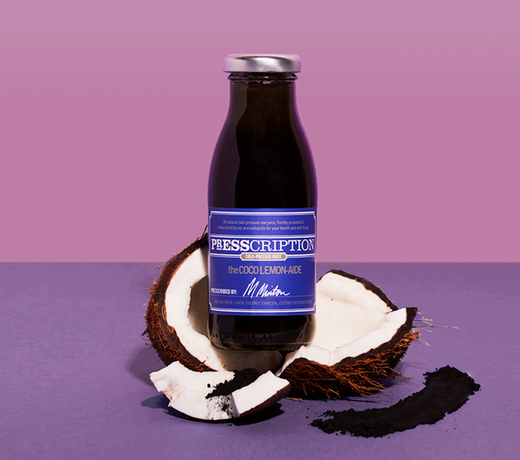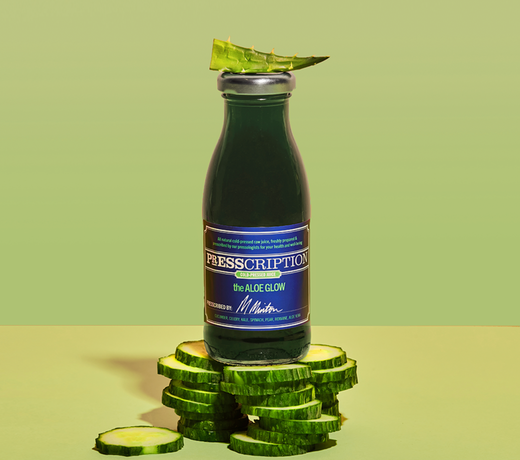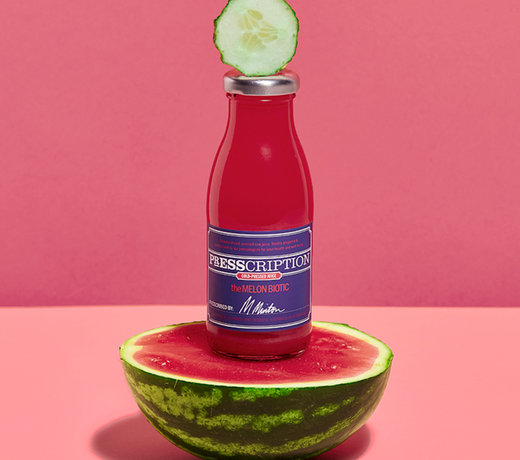How to Cure Hayfever For Good
@gracekingswell
Until I became a Nutritional Therapist working in the Functional space I thought that hay fever was just something that 13 million of us in the UK suffered with because someone had to - you either got it or you didn’t. Hay fever is grouped alongside eczema and asthma as one of the most common allergies that babies, children and adults suffer with. In my family neither of my parents have any of the above, but my brother and I both have hayfever, he had asthma as a child and I had eczema from about the age of 2, and still do.
My hay fever, on the other hand is, for the first time ever, completely non-existent this year! Keen to know why? Keep reading!
As you know, the majority of your immune system resides within the gut and it’s the immune system that regulates allergic reactions, like those from pollen at this time of year. We breathe in molecules of pollen, our immune system flares up and our mast cells secrete histamine which makes us have all the common symptoms we associate with hay fever. The symptoms of a histamine reaction can vary from person to person but include:
- Sinus issues and congestion
- Seasonal allergies
- Asthma
- Redness and inflammation of the skin
- Hives
- Migraines
- Joint pain
- Emotional instability
- Anxiety
- Irritability
You might be surprised to see some of the more neurological aspects of a histamine allergy, and that’s because histamine itself is a neurotransmitter and therefore has the ability to affect our mood. We talk a lot in the media about the anxiety epidemic these days, but rarely do we consider factors such as allergies as being a potential cause...I digress.

"This is the third time I’ve done the Gut Cleanse and the one consistent benefit is how my Inflammatory Bowel Disease symptoms are calmed down to virtually nonexistent. No bloating, no gas, no cramping.... and I have more energy. It’s a great reset for me when things are becoming unmanageable. I’m hooked!"
- Harkamal L.
In the body histamine triggers the inflammatory response as part of an immune reaction to a foreign pathogen (e.g. pollen) - it is an integral part of the immune system (as well as a nuisance), and the symptoms and the response we get are necessary for protecting the body.
I know you’ll be wanting to know how to cure your hay fever for good, and I’ll certainly get onto that, but first we need to discuss why some of us suffer and some of us don’t. Most of our immunity is gathered while we’re infants and it’s the first few years of life that define how robust and how well our immune systems will function for the rest of our lives (assuming we don’t suppress or damage them later on with immunosuppressive meds, antibiotics etc). That being said, whether you were breast fed, whether you were born via cesarean or not, whether you had to take any antibiotics in the first few years of your life (actually very common for babies with ear infections), all play a part in how well your immune system tolerates pathogens later on. Many of us don’t see our hay fever, eczema or dairy allergies as being related to these formative years of our lives, but they are. Similarly, many of us also don’t associate our eczema or asthma with the food we’re eating - but it’s all connected.
Factors that affect predisposition to hay fever
- Genetic background
- Toxin exposure
- Diet
- Infection
- Antibiotics
- Dysbiosis

The above are all factors that could be affecting the severity of your hay fever and whether you have it at all. The most common causative factor from that list that I see in my clinic is dysbiosis and gut health, i.e. oral tolerance. You absolutely can’t mount an effective immune response with poor gut health hanging around. The reason for this is that often in conditions of poor gut health or dysbiosis we end up with intestinal permeability (where large, undigested molecules of food, allergens and pathogens are able to slip through the tight junctions in the gut wall and access the immune cells directly causing an allergic response).
Certainly in my own personal experience I’m not suffering from any hay fever symptoms this year since identifying and eliminating a citrobacter species in my large intestine (i.e. dysbiosis), along with SIBO (Small Intestine Bacterial Overgrowth). Now, because my gut is working optimally, my immune system has also improved and, touch wood, I’m hay fever free!
Generally speaking the gut is where I would begin if you’re looking to treat your hay fever naturally, but it’s not all down to oral tolerance. Allergies can also be related to mucosal homeostasis via the health of our dendritic cells and having adequate SIgA in the gut (SIgA is our first line of defence and if we have enough of it going around then it’s much less likely that an allergen will get any further down and cause a reaction).
What can you do at home to help your hay fever?
- Identify which pollens you’re reactive to and check a list of food/pollen cross reactivity. Then avoid those foods for the hay fever season as they may be making your symptoms worse.
- Consider a low histamine diet for the duration of the hay fever season, this helps by not overflowing the histamine bucket inside your body.
- CHEW YOUR FOOD. I cannot stress this enough, and, despite my training and love of biochemistry, a LOT of my clinical interventions with patients come back to this: without adequate chewing you are far, far more likely to have undigested food molecules coming into contact with your immune cells in the gut bringing about allergic type reactions.
- Focus on your gut health. Either work with a practitioner if you suspect you have something funky going on in there, or, concentrate on abundance, variety and diversity of diet and eliminate the common allergens (gluten and dairy) and see how that makes you feel.
- Probiotics are useful here, and specifically those designed to target histamine type reactions. Again, check with a practitioner or specialist or speak to someone at your local health food store or dispensary.
- Antihistamines are useful in the short term but ideally getting to the root cause of your allergies is the best way for optimal health long term.
Now is a great time to be tuning into your body and how it's feeling. Spend the extra time you have trying new lifestyle hacks that can help you manage stress and calm inflammation, keeping a food diary and tracking any symptoms you have is also a great way to discover your trigger foods, and if you feel you need to speak to a practitioner my (metaphorical) door is always open!
 Why Presscription?
Why Presscription? Why Cleanse?
Why Cleanse? Cleansing Tips
Cleansing Tips What's Pressing?
What's Pressing?

